A few weeks ago, I interviewed each member of the Beefutures team in Nantes as part of my research on Responsible Innovation in start-ups. Here, the company has its R&D laboratory, with people continuously designing, fabricating, testing, and implementing the software and hardware aspects of the Beefutures’ product (with many, many honeybees too). Although everyone is committed to their task all the working day, they all responded very positively to my request for an interview, and I thank them again for their in-depth answers to my questions. But what did I ask them? And, first of all, why? The reason is simple: we cannot think about ethical innovation in technologies, especially in a start-up, without taking a close look at the motivations and commitment of its members, who are by no means reducible to their different roles (as designer, hardware technician, beekeeper…). Not only are their roles much more flexible and multitasking in a start-up than in a large organisation, but behind each of them is a flesh-and-blood individual with their own ideas, character, and personal history. It is on these individuals that depends as much the efficiency of research and product development as the actual implementation of Beefutures’ ecological commitment at different stages of the R&D process, and by the entire team. This may sound rhetorical, but it is a fact that many of them have left behind a stable and profitable job – in their late thirties and forties – to devote themselves to Beefutures’ mission, with all the uncertainties that being part of a start-up entails.
Corporate culture is another factor I wanted to investigate, linked but not coinciding with personal commitment. In addition to being one of the main threads of this series of episodes, the concepts and shared visions associated with new (AI-driven) technologies are also the angle through which I apply Responsible Innovation theory in the context of start-ups. To understand the relevance of organisational culture in start-ups, I refer to the literature cited in section §2.2 of my article mentioned below. Starting from that, I wanted to investigate the team’s shared expectations about its evolution in the coming years, about the expansion of its product in the market, and about the role of its innovation in the context of global challenges (such as loss in biodiversity, food scarcity, and climate change). What influence do these narratives have on maintaining everyone’s ecological responsibility in their daily work? Or, from another perspective, what role do they play in transmitting this commitment from the small circle of founders and pioneers to the large group that is forming around them? These seem like abstract questions, but they should not be answered with theoretical tools alone. Instead, I resort to the empirical methods I learnt in April at the Technical University of Delft and, of course, to the in-depth answers given to me by the members of Beefutures France. However, to get a result from this ‘vision assessment’, both personal and collective, it will first be necessary to analyse them in detail (back to work, then!).
You can deepen several aspects of this article in the first two sections of the working paper published on SSRN at this address. The later parts are more ‘philosophically’ loaded, and may be explored in more detail on a future occasion. I would like to thank Professor Emmanuel Picavet, professor in applied ethics (to business and economics, in particular) at the University Paris 1 Panthéon-Sorbonne, for his valuable comments and corrections.
About the writer
Marco Innocenti is a researcher at Beefutures and a PhD candidate at the Panthéon-Sorbonne University and at the University of Milan, where he is part of “PhilTech – Research Center for the Philosophy of Technology”. He is a Visiting PhD candidate at the Philosophy Group at Wageningen University and Research (NL), among the world leaders in Agricultural and Environmental Sciences.
In his doctoral thesis in Ethics of Technology, he investigates how the possibilities opened up by AI-driven automation in beekeeping redefine the role and concept of ‘nature’ in Responsible Innovation. This reflection aims to indicate guidelines for ethical innovation in AgriTech R&D labs. In this series of articles, he summarizes his research for the interest of experts and enthusiasts in this field.



